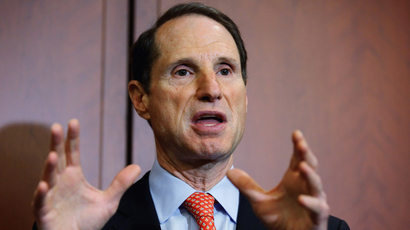Yahoo wins lawsuit to declassify docs proving resistance to PRISM

Search engine Yahoo has won a court case to release NSA records and potentially prove it resisted handing over customer data to US authorities. The ruling could clear Yahoo’s name following allegations it collaborated with the NSA to spy on citizens.
The US Foreign Intelligence and Surveillance Court ruled that
data, pertaining to a 2008 order for Yahoo to hand over customer
information to US authorities, should be revealed.
"The Government shall conduct a declassification review of
this Court's Memorandum Opinion of [Yahoo's case] and the legal
briefs submitted by the parties to this Court," the ruling
read.
Through the ruling the Internet search engine seeks to prove that
it did not collaborate with the NSA in its Prism spy program.
Classified documents leaked by former CIA employee Edward Snowden
revealed that the NSA gathered supposedly private user
information from the data banks of as Yahoo, Facebook Inc.,
Microsoft Corp., Google Inc. and others. All of the organizations
have denied being in cahoots with US authorities and maintain the
NSA gleaned the information without their knowledge.
“Yahoo! takes users’ privacy very seriously. We do not provide
the government with direct access to our servers, systems, or
network,” said a company spokesperson back in June when
Edward Snowden went public with the NSA leaks.

The company filed a request to the US Foreign Intelligence and
Surveillance Court on June 14 to make the 2008 case public. Yahoo
says it means to help inform the public in the ongoing debate
over the US government’s sweeping spy programs.
US authorities have not expressed any opinion over the data that
is to be disclosed but has asked that they be given two week to
review the information before its release.
Staff attorney at the Electronic Frontier Foundation (EFF), Mark
Rumold, expressed doubts over the government’s transparency.
"It remains to be seen how forthcoming (the government) will
be. The administration has said they want a debate about the
propriety of the surveillance, but they haven't really provided
information to inform that debate. So declassifying these
opinions is a very important place to start," Rumold told AP.
EFF also noted in a statement that more companies could have made
requests to the court and the Yahoo request had a gag order on
it.
“We encourage every company that has opposed a FISA order or
directive to move to unseal their oppositions so the public will
have a better understanding of how they've fought for their
users,” said the company.
Washington has come under fire for its sweeping surveillance
programs, provoking the ire of civil rights groups. The Obama
Administration justifies the covert gathering of meta-data as a
measure against terrorism.














